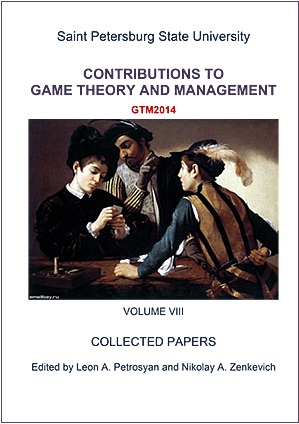Evolutionary Model of Tax Auditing
Abstract
Tax audit is repeated process which occurs annually. Therefore, we consider a dynamic model of tax auditing in this work.
It is supposed that each taxpayer can declare his income less or equal to his true level of income after every tax period. To simplify the model it is also supposed that taxpayers have only two levels of income — low and high. The tax authority assumed to use some statistical information about taxpayers' evasions from the previous tax periods and to choose the probability of tax auditing in the current period depends on this information.
Every taxpayer has one of three possible risk-statuses (risk averse, risk neutral and risk preferred) and change it depending on the external conditions. As well as tax audit is a regular action then it can be modeled as an evolutionary process, which take into account a revision of taxpayers' statuses.
Several modifications of evolutionary dynamics were considered.
Keywords:
tax auditing, tax evasions, risk status, evolutionary games, imitation dynamics
Downloads
References
Downloads
Published
How to Cite
Issue
Section
License
Articles of "Contributions to Game Theory and Management" are open access distributed under the terms of the License Agreement with Saint Petersburg State University, which permits to the authors unrestricted distribution and self-archiving free of charge.




